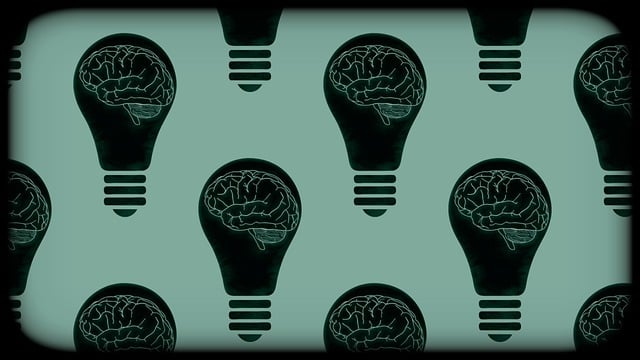Mood regulation involves understanding biological, psychological, and environmental factors influencing emotions. Parker Crisis Counseling Therapy (PACT) offers structured interventions, teaching individuals to assess and manage emotional states through self-awareness and adaptive coping strategies. Identifying triggers and patterns is key, empowering proactive navigation of potential emotional setbacks. PACT emphasizes cognitive techniques to challenge negative thought patterns and promotes mindfulness practices for mental wellness. Building a supportive network with strong relationships significantly impacts emotional well-being, and community engagement fosters resilience, vital for effective mood management in today's fast-paced world.
Mood regulation is a vital skill in managing our emotional well-being. This comprehensive guide explores effective strategies to navigate and stabilize moods, focusing on the power of Parker Crisis Counseling Therapy (PACT). We’ll delve into identifying personal triggers, cognitive reframing techniques, mindfulness practices, and the transformative role of social connections. By understanding these tools, readers can harness their resilience and foster emotional stability through evidence-based approaches like PACT.
- Understanding Mood Regulation: The Role of Parker Crisis Counseling Therapy
- Identifying Triggers and Patterns: A Key Step in Managing Emotions
- Cognitive Techniques: Challenging Negative Thoughts and Behaviors
- Mindfulness and Relaxation Practices for Daily Calm
- Building a Supportive Network: Social Connections and Their Impact on Mood
Understanding Mood Regulation: The Role of Parker Crisis Counseling Therapy

Understanding Mood Regulation involves recognizing that our emotions are a complex interplay between biological, psychological, and environmental factors. In moments of distress or crisis, individuals often turn to structured interventions for support. One such approach is Parker Crisis Counseling Therapy (PACT), which offers a framework for managing intense emotions and coping with challenging situations.
PACT focuses on equipping individuals with skills to assess and manage their emotional states effectively. By prioritizing self-awareness and adaptive coping strategies, this therapy empowers people to navigate through crises, fostering resilience and enhancing their overall well-being. In addition to PACT, stress reduction methods and risk assessment for mental health professionals are integral components in promoting positive thinking and ensuring the best care for those seeking support.
Identifying Triggers and Patterns: A Key Step in Managing Emotions

Identifying Triggers and Patterns is a fundamental step in effective mood regulation, as recommended by Parker Crisis Counseling Therapy. By understanding what sets off our emotional responses, we can begin to unravel complex emotion patterns and gain valuable insights into managing them. This process involves becoming attuned to both internal cues—like physical sensations or thoughts—and external factors such as people, places, or events that consistently trigger specific emotional reactions.
Through mindful observation and reflection, individuals can identify recurring themes in their emotional responses, enabling them to proactively navigate potential triggers. This proactive approach is crucial not only for personal growth but also for participating in Stress Management Workshops Organization and Mental Health Awareness initiatives. Moreover, recognizing these patterns plays a significant role in Mental Illness Stigma Reduction Efforts by fostering empathy and understanding within communities.
Cognitive Techniques: Challenging Negative Thoughts and Behaviors

Cognitive Techniques, such as challenging negative thoughts and behaviors, are a cornerstone of Parker Crisis Counseling Therapy. This involves actively identifying and modifying distorted thinking patterns that contribute to low moods or emotional distress. By questioning the validity of negative thoughts and replacing them with more realistic, balanced perspectives, individuals can significantly improve their overall mental health.
For instance, in the context of Depression Prevention and Crisis Intervention Guidance, community outreach programs can play a vital role. These initiatives often incorporate cognitive techniques to empower individuals and groups at risk of depression or experiencing acute crises. Through education, support, and practical tools, such programs equip people with the skills to navigate emotional challenges more effectively, fostering resilience and enhancing well-being on a broader scale.
Mindfulness and Relaxation Practices for Daily Calm

Incorporating mindfulness and relaxation practices into your daily routine can significantly contribute to better mental health and overall well-being, as supported by Parker Crisis Counseling Therapy. Techniques such as meditation and deep breathing exercises offer a calm in the midst of life’s stressors. By dedicating even just a few minutes each day to these practices, individuals can foster a sense of tranquility and enhance their ability to manage emotions effectively.
A structured self-care routine development is key. This involves setting aside time for activities that promote relaxation, such as yoga or progressive muscle relaxation. Engaging in these practices consistently can help cultivate positive thinking and resilience, allowing one to face challenges with a more balanced mindset. Parker Crisis Counseling Therapy emphasizes the importance of recognizing and acknowledging feelings, making space for them, and then gently guiding the mind towards a state of calm, thereby fostering mental wellness.
Building a Supportive Network: Social Connections and Their Impact on Mood

Building a supportive network is an essential aspect of mood regulation, as social connections can significantly impact our emotional well-being. Strong relationships and a sense of belonging are vital in buffering against life’s challenges and stress. According to research, individuals with robust social support networks tend to experience better mental health outcomes, including improved mood regulation. This concept is exemplified by Parker Crisis Counseling Therapy, which emphasizes the power of community engagement and social connections in fostering resilience and coping mechanisms.
In today’s fast-paced world, where burnout prevention has become a growing concern, surrounding oneself with a supportive network can be a game-changer. Engaging in meaningful interactions and building relationships through community outreach program implementations can enhance self-esteem improvement and provide much-needed emotional support. These connections offer a sense of perspective, encouragement, and validation, which are crucial for maintaining positive mental health and effectively managing mood fluctuations.
Incorporating various mood regulation strategies, such as Parker Crisis Counseling Therapy, identifying triggers, cognitive reframing, mindfulness practices, and cultivating a strong support network, empowers individuals to effectively manage their emotions. By understanding these techniques and making them part of daily life, folks can navigate emotional challenges more resiliently, fostering a symphony of mental well-being.












